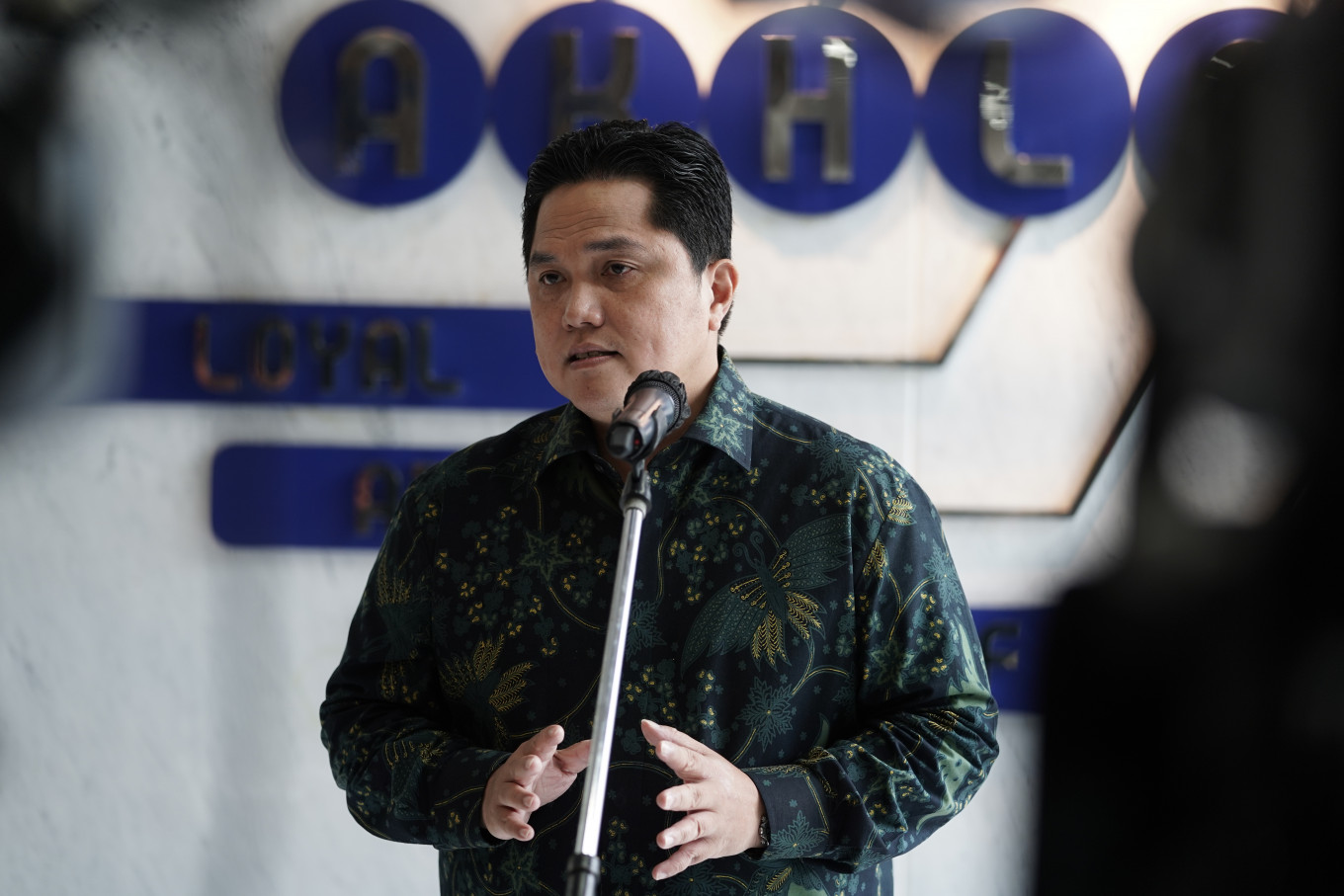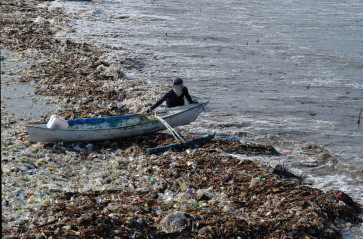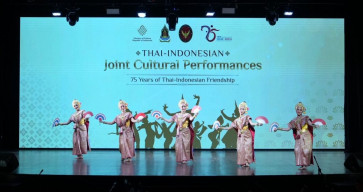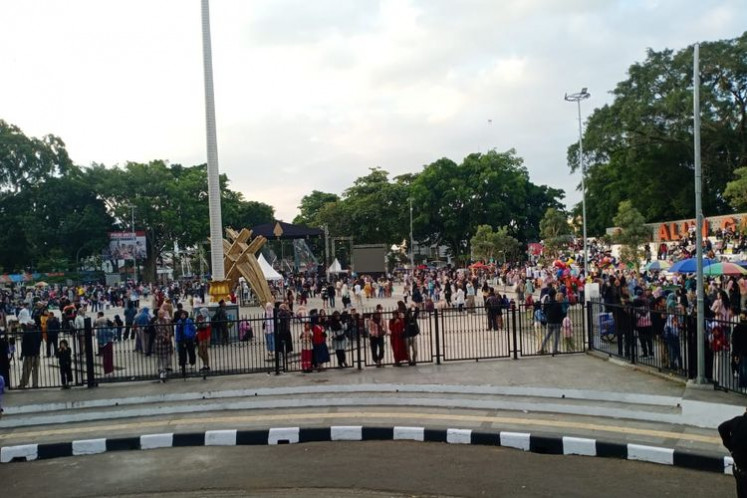Popular Reads
Top Results
Can't find what you're looking for?
View all search resultsPopular Reads
Top Results
Can't find what you're looking for?
View all search resultsGovt expands limitations on SOE executives, commissioners
New rules seek to prevent conflicts of interest, ensure accountability.
Change text size
Gift Premium Articles
to Anyone
P
resident Joko “Jokowi” Widodo has signed a new government regulation that expands previous rules barring executives and commissioners of state-owned enterprises (SOEs) from taking on positions of political leadership, whether in political parties, as lawmakers or as top regional administrators.
The regulation also introduces a provision whereby SOEs’ boards of directors and commissioners can be held personally responsible for company losses.
A previous, 2005 government regulation (PP) had barred SOE leaders from joining the House of Representatives, as well as provincial, regional or city councils, but did not prevent them from running for other forms of regional leadership. The new regulation, officiated on June 8 by Law and Human Rights Minister Yasonna Laoly, expands the restrictions on regional leadership positions.
“Members of [SOE] boards of directors are prohibited from becoming administrators of political parties and/or candidates for the legislature, candidates for regional heads/deputies and/or active regional heads/deputies,” the provision reads.
Further details on the restrictions are to be laid out in a ministerial regulation.
The new rules seek to minimize the chances of conflicts of interest in state firms, considering that 15 percent of all SOE commissioners and executives are politicians, according to 2021 data from Transparency International Indonesia (TII).
Similar prohibitions have been issued at least twice before, noted Titi Anggraini, director of the Association for Elections and Democracy.
“We can see this as the government emphasizing its previous commitments, as per Law No. 7/2017 and Law No. 10/2016. Both contain stipulations that any SOE functionaries running for election must include, in their application, a resignation letter from their companies,” Titi told The Jakarta Post on Monday.
Titi said the new regulation, despite its apparent redundancy, was a necessary step to consolidate existing rules scattered across distinct laws. She noted that the most recent phrasing was “firmer and more detailed” than previous formulations.
While analysts see the new regulation as a positive step, concerns linger about its efficacy at eliminating conflicts of interest. Arya Fernandes of the Centre for Strategic and International Studies (CSIS), a Jakarta think tank, said SOE leaders should not only be barred from political party leadership, but from any form of party membership.
“I think the new rule is the government reiterating itself. If we want more progressive leadership, then no one from an SOE, including those holding lower positions, should be registered as a member of any political party. A lot of commissioners are politicians, and they should resign from their parties,” Arya told the Post on Monday.
Titi noted that the new regulation had failed to close a loophole whereby SOE leaders, while barred from running in elections, were nonetheless allowed to partake in political activity, including campaigning and volunteering for politicians.
“Ideally, the restriction should be interpreted more concretely to include realpolitik activities. This is not to say that [SOE leaders] should be deprived of their political rights, but the fact is, SOEs work for the benefit of the state, for all groups and all interests. Political affiliations will only give space for conflicting interests,” Titi added.
Hadar Nafis Gumay, a former General Elections Commission (KPU) commissioner, noted that the regulation would affect SOE executives with higher political aspirations, including SOEs Minister Erick Thohir, who is thought to be a likely contender in the 2024 presidential elections. But as long as such aspiring state leaders had yet to actually enter the race, Hadar said, they were safe.
“I assume there are a lot of people in SOEs who want to take part in the elections. But if they want to do that, then they will have to submit a resignation letter as part of their application process. And that is very good,” he told the Post.
“We do not want these SOEs to be a milking cow for those who have personal interests,” he added.
Beyond the controls on political activity, the new regulation requires each member of an SOE’s board of directors to assume full personal responsibility for any losses incurred by the enterprise if he or she is found guilty of a miscarriage of duty or negligence.
The same rules apply to SOEs’ boards of commissioners and advisory boards.
The circumstances under which an SOE director, commissioner or advisor may be fired have also been expanded to allow for “other causes or reasons as considered by the minister or […] shareholders for the purposes and interests of the SOE”.
Previously, SOE leaders could only be fired for a failure to perform their duties, for causing the SOE or state budget to incur losses or for being found guilty of a crime.
However, the new regulation allows directors and advisors to avoid personal responsibility for company losses if those losses are not the result of wrongdoing, if there is no evidence of a conflict of interest and if the directors are shown to have made efforts to mitigate the losses and have managed the company with good intentions.
An additional provision now explicitly requires SOE leaders to act in accordance with state ideology Pancasila and the Constitution.










